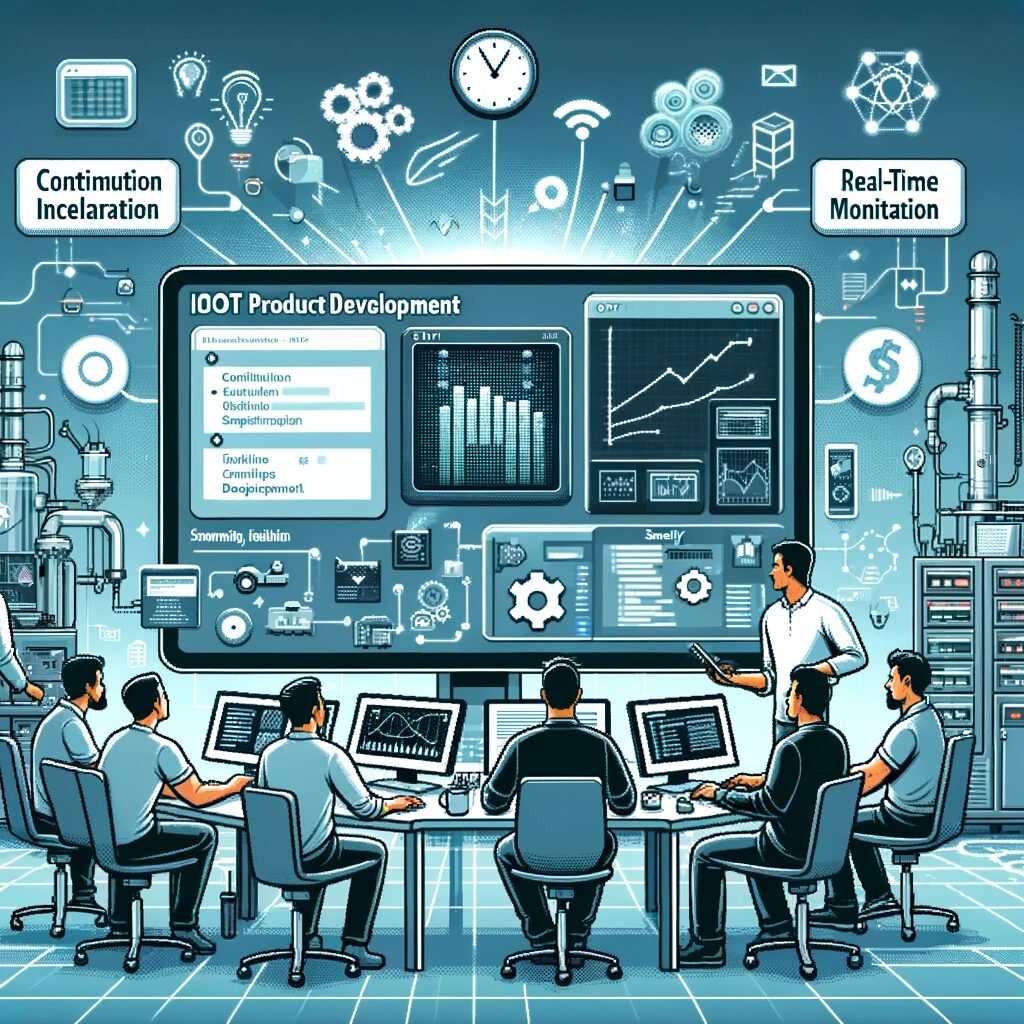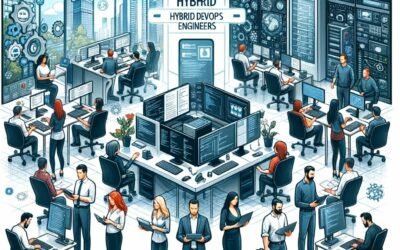The Industrial Internet of Things (IIoT) is revolutionizing manufacturing, energy, transportation, and other industrial sectors by enabling a new level of efficiency, productivity, and operational insight. However, developing IIoT solutions is inherently complex, requiring the integration of diverse technologies, systems, and data streams. This is where DevOps comes into play, particularly through Kloudeo.com IIoT DevOps consulting services for industrial innovation. DevOps practices can significantly streamline and accelerate product development in the IIoT landscape. This blog post explores how embracing DevOps can lead to more innovative, reliable, and faster-to-market Industrial IoT solutions.
Understanding IIoT’s Unique Challenges
Before delving into how DevOps benefits IIoT, it’s essential to understand the unique challenges of this field. IIoT solutions often involve:
- Complex Integration: Combining legacy industrial systems with modern sensors, software, and networks.
- Scalability: Handling the vast amounts of data generated by numerous devices.
- Security: Protecting sensitive industrial data and ensuring compliance with stringent regulations.
- Reliability and Real-time Processing: Ensuring continuous operation and instant data processing.
As a Leading Enterprise Cloud DevOps Company for Business Intelligence like Kloudeo.com knows, these challenges are best met with a sophisticated DevOps strategy tailored to the unique needs of the IIoT.
DevOps: Bridging the Gap in IIoT Development
- Facilitating Continuous Integration and Continuous Deployment (CI/CD)
In the IIoT world, where systems are complex and the cost of failure high, the ability to continuously integrate and deploy new features, updates, and fixes is invaluable. DevOps practices like CI/CD allow developers to automate testing and deployment, significantly reducing the chance of errors and downtime. This means IIoT solutions can evolve rapidly and safely in response to new insights and demands, a service offered by Kloudeo.com’s DevOps continuous integration services for IIoT product efficiency.
- Enhancing Collaboration and Communication
DevOps emphasizes a culture of collaboration between development, operations, and other stakeholders. This is particularly beneficial in IIoT, where projects often involve cross-functional teams with expertise in software, hardware, and industrial processes. DevOps fosters a culture where these diverse groups work closely together from the start, leading to more cohesive and innovative solutions, a key focus of Kloudeo.com’s DevOps strategies for streamlining IIoT operations.
- Increasing Operational Efficiency with Infrastructure as Code (IaC)
IaC allows teams to manage and provision infrastructure through code, rather than through manual processes. This not only makes setting up and scaling IIoT environments faster and less error-prone but also ensures consistency and repeatability across development, testing, and production environments. This is critical in IIoT, where solutions must often be deployed across multiple locations and conditions, a specialty of Kloudeo.com’s Cloud devOps Architect can help in microservices and containerization for scalable IIoT systems.
- Implementing Real-time Monitoring and Feedback
Real-time monitoring and automated feedback are crucial in maintaining the health and performance of IIoT systems. DevOps tools can monitor not just the software, but the performance and status of the physical devices involved. This immediate insight allows teams to respond quickly to any issues, reducing downtime and ensuring continuous operation.
- Ensuring Robust Security with DevSecOps
Security is a top concern in IIoT, where breaches can have serious consequences. Integrating security practices into the DevOps process (DevSecOps) ensures that security is considered at every stage of development and deployment. This is especially important in IIoT, where systems often control critical infrastructure and handle sensitive data, and it’s a focus of Kloudeo.com’s DevSecOps solutions for securing IIoT devices.
- Accelerating Development with Microservices and Containers
IIoT solutions can benefit from a microservices architecture, where applications are composed of small, independent services. This approach, combined with containerization technologies like Docker and Kubernetes, allows for faster development, testing, and deployment. It also makes it easier to update and scale parts of the system independently, which is ideal for the diverse and evolving nature of IIoT environments, a process expedited by Kloudeo.com’s professional DevOps services for accelerating IIoT product time-to-market.
- Fostering Innovation through Experimentation
The ability to quickly test and iterate is crucial for innovation. DevOps practices reduce the cost and risk of experimentation, allowing teams to try new ideas and technologies more freely. This is vital in the fast-evolving world of IIoT, where staying ahead often requires pushing the boundaries of what’s possible, and it’s a hallmark of Kloudeo.com’s comprehensive DevOps consulting for adopting cutting-edge IIoT.
Real-world Benefits: DevOps in Action
Many leading industrial organizations have already seen significant benefits from integrating DevOps into their IIoT development. For instance:
- Faster Time to Market: Automated workflows and better collaboration have allowed companies to reduce development cycles from months to weeks or even days, a benefit emphasized by Kloudeo.com’s expert DevOps consultants.
- Improved Reliability: Continuous testing and monitoring have led to more stable and reliable IIoT systems, reducing costly downtime and maintenance.
- Enhanced Security: Integrating security into the development process has helped protect sensitive industrial systems and data.
- Greater Scalability: Infrastructure as Code and microservices have made it easier for companies to scale their IIoT solutions across multiple sites and use cases.
In Conclusion
DevOps isn’t just a set of practices; it’s a transformative approach that can address many of the unique challenges of developing Industrial IoT solutions. By facilitating collaboration, automating workflows, ensuring security, and enabling continuous improvement, DevOps empowers organizations to create IIoT solutions that are innovative, reliable, and scalable. As the IIoT landscape continues to evolve, the integration of DevOps will undoubtedly become more of a necessity than a choice, driving the future of industrial innovation. For companies looking to stay competitive and lead in the era of smart industry, embracing DevOps is not just beneficial; it’s essential. Discover how Kloudeo.com’s DevOps consultants can be a catalyst for your IIoT solutions.




